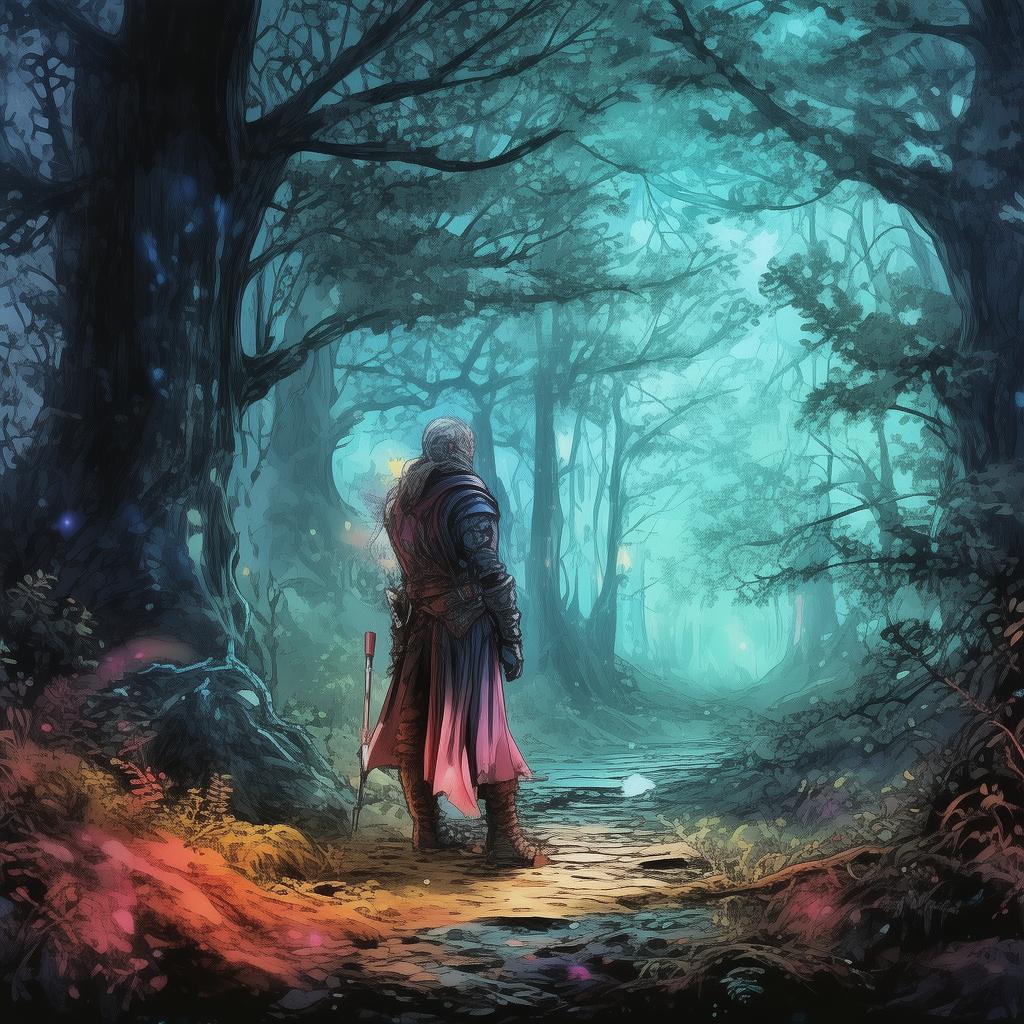The Shadow of the Enlightenment: The Clandestine Whispers of Louis XIV
In the heart of Versailles, where the air was thick with the scent of orange blossoms and the echo of courtiers' laughter lingered in the halls, there lived a young scribe named Etienne. His hands, calloused from years of writing, were the only evidence of the world he knew—a world of endless scrolls and whispered secrets.
It was a crisp autumn evening when Etienne received a letter. The seal, unbroken, promised a secret that could change everything. The letter was penned by an unknown sender, but it spoke of a conspiracy within the very court of Louis XIV, the Sun King himself. The sender claimed to have evidence of corruption, deceit, and betrayal at the highest levels of power.

Intrigued and apprehensive, Etienne set out to uncover the truth. He began by seeking out the letter's author, but it seemed as though the sender had vanished into the labyrinthine corridors of the palace. Each day brought new clues, each more chilling than the last. The letters spoke of meetings in secret rooms, of coded messages hidden in paintings, and of the shadowy figure known only as "The Whistleblower."
Etienne's quest for the truth soon became a game of cat and mouse. He had to be cautious, for the court was a den of spies and informants, and any whisper of dissent was met with swift and often brutal punishment. Despite the danger, he was driven by the ideals of the Enlightenment, which he had studied and admired since his youth.
One night, as the moon cast its silver glow upon the palace gardens, Etienne stumbled upon a secret meeting. The Whistleblower was there, a gaunt man with a face etched with years of hardship. He spoke of the corruption that had infiltrated the very foundations of the monarchy. The King, he claimed, was surrounded by traitors and informants, all eager to please the whims of the Sun King for their own gain.
The Whistleblower spoke of a document, a document that would expose the King's inner circle. If Etienne could obtain it, they could bring down the entire corrupt system. But the document was in the hands of the Marquise de Pompadour, the King's favorite, a woman as cunning as she was dangerous.
With the help of a few trusted allies, Etienne set a trap. He used his position as a scribe to gain access to the Marquise's private quarters. One night, as he was copying a letter for her, he managed to steal the document. But as he read its contents, he realized that it was not the end of the conspiracy—it was only the beginning.
The document spoke of a plot to overthrow the King. The Whistleblower was not who he claimed to be; he was the Marquise's pawn, and Etienne was now in the crosshairs of the court. The Marquise's spies were everywhere, and Etienne knew that he had to act quickly if he wanted to survive.
He sought refuge in the secret study of the King's confidant, the Comte de Saint-Lubin. Saint-Lubin was an ardent supporter of the Enlightenment and had long suspected that the King's court was not as perfect as it appeared. Together, they devised a plan to expose the truth and bring the Marquise to justice.
The night of the grand ball, when the court was at its most vulnerable, Etienne and Saint-Lubin executed their plan. As the King danced with the Marquise, Etienne slipped the stolen document into the King's hand. The Sun King, aghast at the revelation, ordered an immediate investigation.
The Marquise was arrested and her network of spies was dismantled. The court was in an uproar, but the King, grateful for the truth, allowed the Enlightenment to flourish in France. Etienne was hailed as a hero, and his name was etched in the annals of history.
But as he stood in the grand hall, watching the King address the court, Etienne knew that the true victory was not in the downfall of the Marquise, but in the awakening of the Enlightenment within the hearts of his fellow men. The court of Louis XIV might have been a place of opulence and intrigue, but it was also a crucible for change, and in that crucible, a spark had been lit.
The story of Etienne, the young scribe, and the clandestine whispers of the Enlightenment would be told for generations, a testament to the power of truth and the indomitable spirit of those who dared to challenge the status quo.
✨ Original Statement ✨
All articles published on this website (including but not limited to text, images, videos, and other content) are original or authorized for reposting and are protected by relevant laws. Without the explicit written permission of this website, no individual or organization may copy, modify, repost, or use the content for commercial purposes.
If you need to quote or cooperate, please contact this site for authorization. We reserve the right to pursue legal responsibility for any unauthorized use.
Hereby declared.









